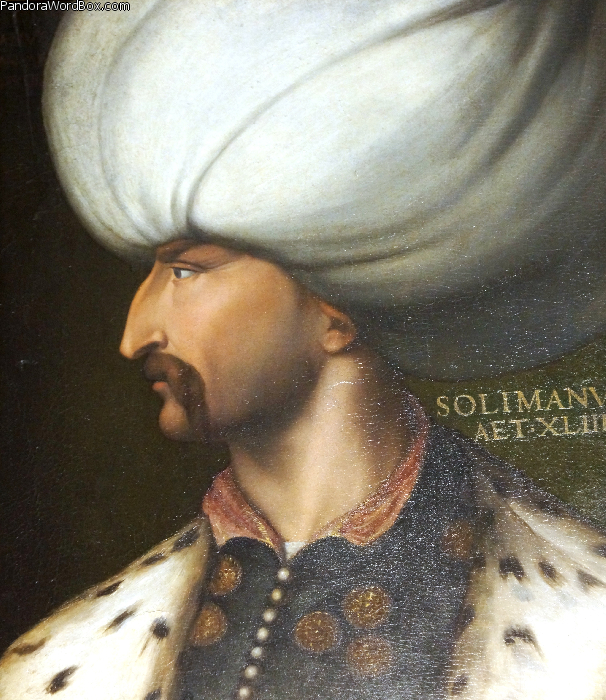Our websites offer information mostly for educational purposes with no intent to alter health care protocols nor to serve as a sole source of medical information.
Always seek the advice of your local health care provider.
|
× UKRAINIAN CHILDREN WITH DISABILITIES HAVE SPECIAL NEEDS |
SULEIMAN THE MAGNIFICENT

"Solimano II deto il Magnifico Sultano Ottomano - Suleiman the Magnificent (1495-1566)" (see related A | B), 1587 Cristofano dell'Altissimo (c. 1525-1605) Uffizi Gallery, Florence, Tuscany, Italy
Of clinical interest is the Sultan's "magnificent" nose - it is "magnus" or "big" as if "magnified" - male noses tend to grow with aging (persisting stimulus of androgenic hormones such as testosterone). The same is not true for noses of females, which for the most part grow less during aging. However, some mature and elderly women may have enlarged noses (think of "Baba Yaga").
Suleiman is remembered not only because of his power and impact on Europe but also for his immense love for Roxalana - a slave girl whom he elevated to consort and later married against established Turkish norms. He wrote poems about her loveliness, but perhaps in strangers' eyes her beauty may not have been so stunning (see what you think and ponder about the mysteries of love). They had many sons, an anathema among Turks, for it implicitly meant conflicts of succession. Eventually, Suleiman ordered a filicide - the strangulation of one of his sons (Ivan and Peter "the greats" of Russia did likewise). And away from the grim, Roxalana also had a daughter portrayed as beautiful (see and judge).
Suleiman had multiple pseudonyms, including "the Law Giver" (Kannuni), Muhibbi (the poet). He is considered a leading patron of the arts and is a strong opponent of corruption. Furthermore, he was an accomplished goldsmith and made jewellery for his beloved second wife Roxalana.
20220520 ww
|








